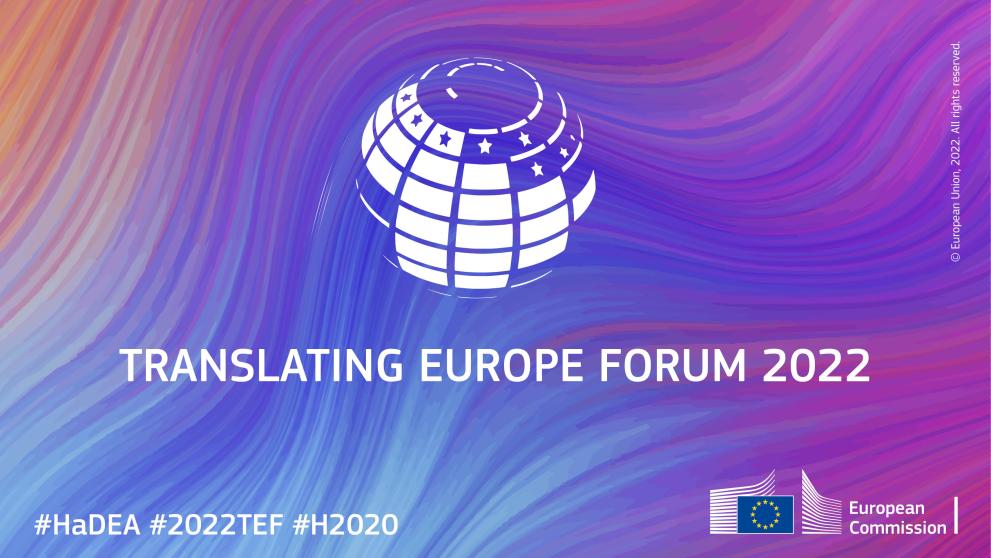
The Translating Europe Forum 2022 (9-11 November 2022) will show how technology, coupled with the specialist skills and knowledge of translation professionals, is making the world a more interconnected, accessible and user-friendly place. As the co-existence of many languages is a cornerstone of the European project, the European Union has been active in promoting multilingualism, and supporting the deployment of technologies to break down language barriers.
Find here an overview of EU-funded projects managed by HaDEA that contribute to the innovation in translation technologies.
Related HaDEA-funded projects
The eTranslation tool funded under CEF Telecom is an example of this effort, guaranteeing confidentiality and security of all translated data across Europe.
Under the Horizon 2020 programme (2014-2020), the European Health and Digital Executive Agency (HaDEA) has been funding EU projects in the domains of the Digital Services Package:
BERGAMOT: the project runs translation locally, ensuring privacy as data never leaves the user's computer. The text being translated is never sent to a third party, so the viewing history remains confidential and private. The consortium publishes models in more than a dozen languages, including English, Spanish, German, and Italian.
Pret-a-LLOD: language technology specialists spend 80% of their time cleaning, organising, and collecting data sets because the data is not ‘ready-to-use’. The EU-funded Prêt-a-LLOD project has created a new methodology to build data value chains applicable to a wide range of sectors and applications. It is also developing novel tools for the transformation and linking of datasets that can be applied to both data and metadata to provide multi-portal access to heterogeneous data repositories. This toolkit will increase the uptake of language technologies by removing usage barriers and provide cost savings that benefit both public and private sector users.
EASIER: the project aims to develop a translation platform that will enable users of European sign languages to communicate effectively with hearing individuals and create a more inclusive European society. The project included end-users early on during the creation process which led to improving the standards on sign language representation and resource creation. A major goal is to develop a fully operational avatar prototype by the end of December 2023.
SignOn: the project aims to develop a mobile application that translates between different European sign and verbal languages. Their goal is to assess the gaps in communication between researchers, industry, user communities and deaf/hard-of-hearing communities. To date, SignON has developed working versions of the SignON App and Framework according to user requirements and expectations. It established a repository for the code base which will be openly accessible after the end of the project (December 2023).
Background information
Horizon 2020 (H2020) was the EU’s multiannual funding programme between 2014 and 2020. H2020 provided Research and Innovation (R&I) funding for multi-national collaboration projects alongside individual researchers and SMEs via special funding instruments. Horizon 2020 was replaced by the Horizon Europe Programme which will run until 2027.
Horizon Europe (HE) is the current research and innovation programme of the EU for the period 2021-2027. HE Cluster 4 focuses on Digital, Industry, and Space and aims to deliver on the following six destinations matching the Strategic Plan: Climate-neutral, circular, and digitised production. Increased autonomy in key strategic value chains for resilient industry.
Details
- Publication date
- 9 November 2022
- Author
- European Health and Digital Executive Agency
- Programme Sector
- Digital
- Programme
- Horizon Europe
- Horizon Europe Cluster 4: Digital
- Tags
- Digital technology
- Digital transformation
- EUFunded
- Innovation
